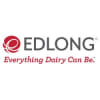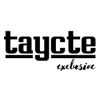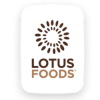After graduating with honors degrees in English literature and economics from New York University, Ryan Williams entered Houlihan Lokey, the leading M&A advisor for middle market U.S. consumer, food & retail transactions as a financial analyst before joining Techstars, a startup accelerator and venture capital firm, as an associate.
Ryan now leads finance and special projects for RISE Brewing, an organic, award-winning nitro cold brew coffee brand based in New York. On the side, he likes backpacking to all corners of the globe, deep house, helping other food entrepreneurs and long walks through the grocery store.
Coconut water. Weird. Unsweetened yogurt. Weird. Nitro coffee. Weird. Soylent. Really weird.
What’s not weird are the fortunes being generated by products which, not long ago, were mere blips on Mintel’s radar and far too niche to appear in “next new trends” reports.
And, yet, when you overhear buyers asking brands what makes them special, the answers often sound the same: “We’re organic! We’re the most delicious! We’re made with love!”
Perhaps once a category really takes off, sustained differentiation becomes futile as more competitors enter the mix. At the outset, however, there’s an opportunity to stand apart, which may be best seized by approaching it from a different angle.
A new way of thinking about differentiation and a brand’s unique selling proposition is to instead ask, “What makes it weird?” Therein lies the real secret sauce.
Uncomfortably unique also serves as a great indicator of investment worthiness. Curiously, “contrarian” is a buzzword among tech VCs but largely unmentioned within food. The best firms, however, seem to embrace it, with notable investments ranging from CAVU’s $19 million into butter coffee to Boulder Food Group’s investment in Caulipower, a cauliflower pizza crust maker.
Example, from left to right: Bottled Water — Boxed Water — Charcoal Water
One notable investor, Peter Thiel, famously asks, “What important truth do very few people agree with you on?” And if he’d asked Mark Rampolla in 2004, he’d have learned that coconut water was going to be a billion-dollar business.
Elsewhere in his book, Zero to One, Thiel argues the cutthroat restaurant industry means meager margins, low wages and stagnant growth, which translate to long hours for little financial return. As the son of a failed restaurateur, he’s absolutely right. Good pancakes alone didn’t cut it.
With so many options, standing out is key.
Likewise, in CPG, good tastes can camouflage bad business. My mom’s chocolate chip cookies are good. But so are my aunt’s, my grandma’s and yours, too. The market does not need another good cookie. It instead craves something fresh and exciting, which it often first describes as “weird.” If you strip away the negativity, the upside potential here becomes clear.
Weirdness acts as a sticky marketing channel by freely cementing your brand in your customer’s mind — no costly, multi-touch digital marketing strategy necessary. As a startup, that’s the first thing you’ve got to do: Make people stop and think and consider you amid all the noise. In an aisle of sugary soda, be the coconut water. Earn mindshare and get folks talking by emphasizing what makes your product indelible.

For these reasons, embrace a degree of negative feedback. The president of Big Geyser, a major NYC beverage distributor, eventually admitted, “When I tried it [Zico coconut water], I didn’t get it. I thought it was disgusting.” Justin Woolverton, a co-founder of Halo Top, commented, “People were revolted or they absolutely loved it.” Indeed, almost all of the biggest breakouts start with their leaders being told, in so many words, “You’re crazy.” Don’t despair if some question you on their first bite.
Your weird trait is your secret sauce, your unique selling point, the thing which separates you from the herd. It’s how you should market and present your company. Too much reliance on third-party certifications or nutrition claims offloads your brand equity value to the certifying body. Weirdness is wholly owned.
Whatever your role within the food and beverage space — entrepreneur, investor, or retail buyer — you’ve got to be willing to get weird.













